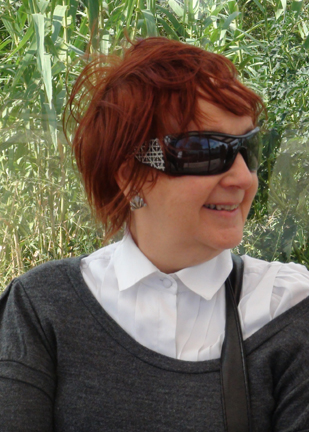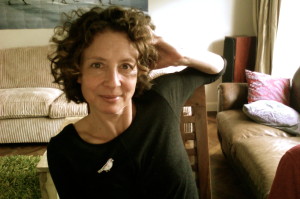|
Today, I am delighted to include a guestpost from another expat blogger, known as The Expat Writer, this time with hundreds of posts under her belt. Donna-Lane Nelson is a professional writer who has used blogging to help her raise her profile and sell books. Read on to find out why…  “My girlfriend was oohing and ahhing about the cheap prices for appliances, such as a coffee maker for $6.99.” That was my first blogging sentence on htheexpatwriter 11/28/94. Now it’s 1850+ posts and nine years later. Originally I started blogging to let my friends in different corners of the world know what I was doing, but then it took on other uses not in order of importance:
Because my blog address is in the bio section of my published novels, I’ve picked up readers. I’ve had the blog addresses as part of my signature line on emails. I’m amazed when I look at the stats where some of my readers come from. Russia, Lebanon okay, but I don’t know anyone in Vietnam or Hong Kong. Blogging implies certain responsibilities. I wouldn’t use it to embarrass friends, and often ask permission if I can blog shared experiences. My housemate, when something funny or interesting happens to us, will say, “Put it on your blog” or “That would make a good blog.” Both my housemate viewsfromeverywhere and fiancé lovinglifeineurope now have their own blogs. In fact the other day, when I asked my fiancé a question he said, “You can read it on my blog.” I developed a second blog, wisewordsonwriting, now inactive but still up, where I posted newsletters that went out to 2,500+ writers before it became a monthly column in an English writer’s magazine. Just recently I’ve started a new blog flashfictionexercises where I post exercises I do with a writing friend. The postings are ten minute free-writes which I do not edit (except for typos) but add appropriate art work. As a writer, I saw I have diarrhea of the fingers. I can’t not write: blogging is one writing outlet. I hope that what I say can move people, make them laugh, give them an experience or vicarious adventures that they might otherwise not have while satisfying my writing addiction. In just a year, Ana, who is on our reviewing team, started blogging. Since then she has changed her mind, shelved projects and finally settled on a format and focus that works for her. I remind my students that a blog must be sustainable, so that you are motivated to write it regularly, but that it must also be focused. Ana is a great example of someone who has had three blogs with three different titles and purposes. It is OK to change your mind – as long as you stay focused.  I started blogging about a year ago. Initially I was dubious about the value of the exercise, and whether it would only squander the limited time I had available to myself. I had read many posts that seemed to offer little that I considered relevant, and didn’t want to add to this category. This was a valuable insight, as my initial plan was to create a blog titled: The Infallibility of My Ex-Husband. FYI: I am still married and this particular phase in marital disharmony was soon resolved. As a serial expat, often living in countries where English is not the first language of the natives, I feel impeded in my attempts to communicate and be completely understood. Learning a new language has reduced my communication skills to a level of basic survival. By keeping verbal exchanges simple and clear, I increase the likelihood of having my message delivered intact. Yet, it is the inclusion and understanding of the nuances of language that gives a conversation color and depth. I felt that I had been gagged. This is why I started to blog. My first blog (memoryextracts.blogspot.com) draws on my professional background working with people living with a dementing illness. Being fascinated by the unique impact dementia has on every individual’s cognition; personal coping mechanisms; carer or family responses to people with dementia, – are underlying themes in my blog posts. This blog is never going viral. A second blog is the result of a four-year book project tackling the topic of what it is to be a Muslim woman, and written with a Malay friend. Having to admit a certain level of ignorance about Muslim people and their religion, I was fortunate to find someone who lives under the teachings of Islam and was willing to answer my questions, over coffee or lunch. The project expanded and was launched as a blog to test the waters with the reading public. Currently on the shelf again, this blog experience taught me how fickle the blog audience can be, and why SEO (search engine optimization) is important. Created as a place to store and display my growing portfolio of written work, my third blog (anamcginley) has become more of a personal blog. This is where I post my observations about the world. I envisage that this blog will become an anthology of my experiences as an expat woman raising a large family in a foreign culture and land, and seeking to reestablish an identity outside the family and home. So in answer to the question that started this post: I blog because it allows me to express myself in a clear voice augmented by my experience, knowledge and personality. Blogging forces me to analyze my thoughts and to check my facts. While forcing me to continually hone my writing skills, blogging stimulates my intellect and demands that I stay conscious of what is going on around me. Ana McGinley Like so many people right now I’m into Brené Brown. In fact, the week I bought her book, three separate people had mentioned her so she is certainly à la mode. So too are her specialisms of shame and vulnerability. As regular readers will know, I’ve been ‘doing’ vulnerability for a while now as a writer. I like to ‘show my lining’ as I have been known to call it, and to ‘write naked’. One of my students, an NLP practitioner, called Rawia, was even inspired to guestpost for me on the subject, explaining why doing so is so vital to our wellbeing. But it wasn’t until this morning, when I allowed myself my daily dose of Brené with my cup of coffee that I realised there was more to it. “Once you realize that your self-worth is hitched to what you’ve produced or created, it’s unlikely that you’ll share it, or if you do, you’ll strip away a layer or two of the juiciest creativity and innovation to make the revealing less risky,” she writes in her latest book, Daring Greatly. Which takes the issue of being vulnerable as a writer to a whole new level. Sure, it’s hard to ‘bare all’ in a piece of writing. You feel open, raw, exposed and worry that you will be judged for the ‘person you really are’. And so there is one road block right away, making you stall before you even pick up the pen. Tough to write in the first place Many of my writing friends struggle with writing real, hard-hitting, painful truths about their lives, their feelings, their experiences, because they think they will be judged, or that, even if they write something privately in a journal, someone may read it (worst of all that the person is their mother) and in some cases that it will be found after their death and someone will read it then. I believe that the road to healing and to dealing with tough stuff IS to write it down. And I believe that when I share my struggles with the world and press the Publish button on my blog that maybe someone will be helped by my words. Maybe someone will see themselves in my story and realise they are not alone. I’m not talking about changing the world, just one person is enough for me to know it was worth it. Some of my students worry about the fine line between narcisism and actually helping others. I tell them that if their words are written not to wallow in your pain or to show you are a victim, but are written with the purpose of helping and supporting others, then they are on the right track. Tough to share But once your heart-on-sleeve writing is out there in the blogosphere, you have another problem to face. What if it doesn’t help anybody? What if someone doesn’t like it? Brown continues with: “If the reception does not meet your expectations, you’re crushed. Your offering is no good and you’re no good […] you shut down. Shame tells you that you shouldn’t even have tried.” I know. I’ve been there. Crushed and left blocked for over six months from a piece of criticism from just one person in a group of 10 (the other nine loved it). Vulnerability and shame are never far away for the writer. Between a rock and a hard place you feel damned if you do and damned if you don’t and then if you do (write it and publish it) you may get one piece of negative feedback. No, you won’t notice the 299 pieces of great feedback! My solution to this is to get back up and try again. And, like magic, the moment I get another piece of good feedback and I’m cooking on gas. In conclusion, though, as I watch Brown’s amazing TED talks on this subject and learn how she was terrified of exposing herself in this way, telling her stories of how ‘uncool’ she had been, and then, having done so, how she ducked away to hide for fear of (metaphorical) rotten tomatoes being thrown at her, I recognise the effect of her incredible bravery. She ‘dared greatly’ and, in doing so, is changing lives all over the world. I’m in. Are you? |
�
All the latest news from the team at Summertime Publishing
As an Amazon Associate, we may earn a commission from qualifying purchases. This does not affect the price you pay or your consumer rights.
Archives
June 2024
|

